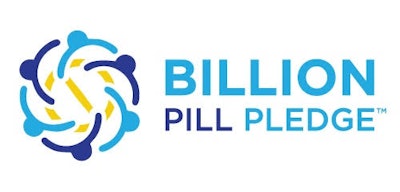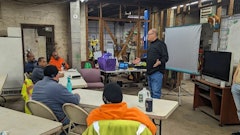
America’s Opioid Crisis is a public health tragedy that has touched nearly every family and community. Hundreds of thousands of lives have been lost and many more have been deeply impacted. Twenty-two million Americans are in long-term recovery from a substance use disorder. That’s one person in recovery for every 12 adults in the U.S.
The risks related to unnecessary prescription opioid exposure should be on all of our minds. The focus of this article is the 22 million Americans in long-term recovery. For them, what happens when the need arises for healthcare procedures that all too often still rely on opioids?
Why is it important for persons in recovery from addiction to consider alternatives to opioids for pain management for surgical, medical, and dental procedures? Ninety percent (90%) of patients receive a prescription for opioids after surgery. Unfortunately, more than one in five patients who were not previously using opioids, who then undergo surgery, continue to use opioids three months after surgery. They become dependent users of opioids for the simple reason they needed a surgery and followed the doctor’s orders.
Undergoing surgery is stressful for every patient. For those in recovery, it’s even more stressful. The effect of re-exposure to prescription opioids can be profound, physically and emotionally. The worst-case scenario is that a re-exposure through surgery causes a backslide to a darker time for that individual. The good news is, armed with a bit of knowledge and support, a different experience is possible today.
Role of Surgery in New Cases of Persistent Opioid Use
It has been well established that new cases of persistent opioid use often result from surgical procedures. According to the Plan Against Pain, 9% of all surgery patients become long-term users of opioids. And while there are significant risks related to orthopedic procedures (such as rotator cuff repairs, hip replacements, and knee procedures), patients undergoing cancer (such as colectomy for colon cancer), women’s health (such as hysterectomy), and general surgeries (such as hernia repairs) are at risk as well.
Even a few days of opioid exposure have been shown to cause changes in patients’ brains—changes that can lead to withdrawal and other complications. Women are 40% more likely than men to become newly persistent users of opioids following surgery. A combination of factors—including physiological, clinical and social—contribute to this increased risk of addiction. Doctors prescribe women 15% more opioids than men. Women undergo major surgical procedures men do not, like hysterectomies to remove the uterus, and childbirth through cesarean section.
Risks even extend beyond the patient to the entire household, due to leftover pills. A 2023 study found that two opioid prescriptions dispensed into a household in a six-month period increases the risk of overdose for everyone in that household by six times.
Alternatives to Opioid Pain Management in Recovery
Multi-modal pain management is the key. What that means is using many options to manage the pain, rather than relying heavily on opioids (as the US healthcare system has over the past 25 years). Multi-modal pain management starts in some familiar places—your medicine cabinet and your freezer. The foundation of pain management after many surgeries includes:
- Acetaminophen (Tylenol)
- Ibuprofen (Advil, Motrin)
- Ice
National Safety Council data shows that the two non-prescription medications—acetaminophen and ibuprofen—taken together provide three times better pain management than oxycodone (a commonly-prescribed opioid).
Other strategies and medications can be very helpful as well, especially before surgery. These include:
- Celecoxib (Celebrex; this prescription medication is a special version of ibuprofen that doesn’t interfere with bleeding during surgery)
- Pregabalin (Lyrica; prescription medication)
- Nerve blocks during surgery
We know a lot more today than we ever have about pain. Many find benefits from distraction, vibration therapy, massage, acupuncture, prayer/reflection, and many other “non-medication” techniques as well. There is no “silver bullet” for managing pain, but combining some or all the above approaches can result in an outstanding experience.
Tough Conversations
Many patients have a difficult time advocating for themselves because they aren’t sure what they are asking for, or they are afraid of being dismissed by their surgeon,” states Abbi Herrick, RN, Vice President of Clinical Quality for Goldfinch Health. Herrick asserts “not only can a surgical nurse navigator provide the patient with education about their pain management options, but we also offer our patients the option of having a nurse advocate for these best practices on their behalf.” Herrick highlights the importance of a nurse navigator “speaking the same language as the surgeon through many years of experience within the operating room setting.”
Herrick shared, “we know what to ask for to create the best surgical experience that we can for ourselves, and all we want is for our patients is to have the same advantages and experiences.” Herrick is proud of the advocacy and empowerment provided to patients through “resources that they can take to their surgeon/surgical team during their pre-op appointments or even the morning of surgery to aid in these discussions.”
Herrick underscores the “importance of informing patients that they have options. The patient is paying for this surgery, and they pay for the insurance that also pays for this surgery.”
“They are the consumer”, and Herrick reminds them “they have every right to ask their surgeon questions and ask for pain management options other than or in addition to opioid medications.” Herrick advises patients “they also have the right to a second opinion if the surgeon is not open to their questions. This is their surgery, happening to their body, and they have every right to ask questions, advocate for minimally invasive techniques, and request opioid alternatives.”
The Perspective of a Physician & Surgeon
Dr. Joshua Everts, DDS, MD, FACS is a dentist and oral surgeon in Birmingham, Alabama, who highlights “this is a topic on which I think most surgeons and dentists have very little training. We are now required to ‘check the box’ for yearly continuing education, but I’m not sure the material that fulfills that requirement is sufficient.”  Photo 1) A "Prepared for Surgery Kit" from Goldfinch Health.Goldfinch Health
Photo 1) A "Prepared for Surgery Kit" from Goldfinch Health.Goldfinch Health
To Dr. Everts, “knowledge is the most powerful tool in diagnosing and treating. This can often lead to a realistic conversation about pain management around surgery and procedures”. Everts continued by emphasizing “often the patient is the best source of information for appropriate treatment. The general acceptance of social marijuana use has actually allowed patients to feel comfortable having these conversations with their medical provider.” Dr. Everts states “the goal is to have a frank conversation with every patient, not just those with a possible complex history. Tailoring their treatment is an open conversation with each and every patient where we encourage interactive participation.” Everts concluded by emphatically stating “it is critically important that there is not a threat of abandonment or refusal of care if substance use disorder is uncovered.”
Return-to-Work
How can employer- and union-sponsored health plan administrators and employee benefit leaders help plan members be better prepared for surgery and the return-to-work process? Goldfinch Health created a health navigator model that combines personalized nurse care management, patient advocacy, Enhanced Surgical Pathways, and leading-edge technology. This ensures patients have access to the best information, surgical approaches and, perhaps most important, support exactly where and when they need it. Photo 1 shows a Prepared for Surgery Kit to help employees understand Enhanced Recovery surgical procedures, available through Goldfinch Health. This kit provides education and resources for patients and caregivers, as well as medical providers not as familiar with opioid-sparing or opioid-free surgical procedures. 
Several states have initiated programs under the banner of the Billion Pill Pledge program to reinforce opioid-sparing surgical procedures to reduce both prescribed and leftover opioid pain management from surgery to reduce the risk of addiction. The Billion Pill Pledge program is powered by Goldfinch Health and provides expertise in consulting to providers and healthcare systems to reduce unnecessary opioid prescriptions through multimodal pain management, alternative non-opioid medications, and non-pharmacological pain management approaches.
Enhanced recovery protocols are important for all patients as they approach surgery. It could not be more critical for patients at risk due to a history of addiction.
To learn more about how you can empower your employees and members, contact a Goldfinch Health representative or by email (hello@goldfinchhealth.com).


























